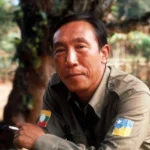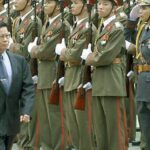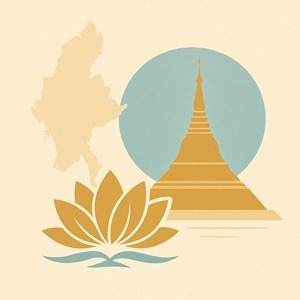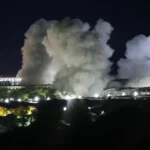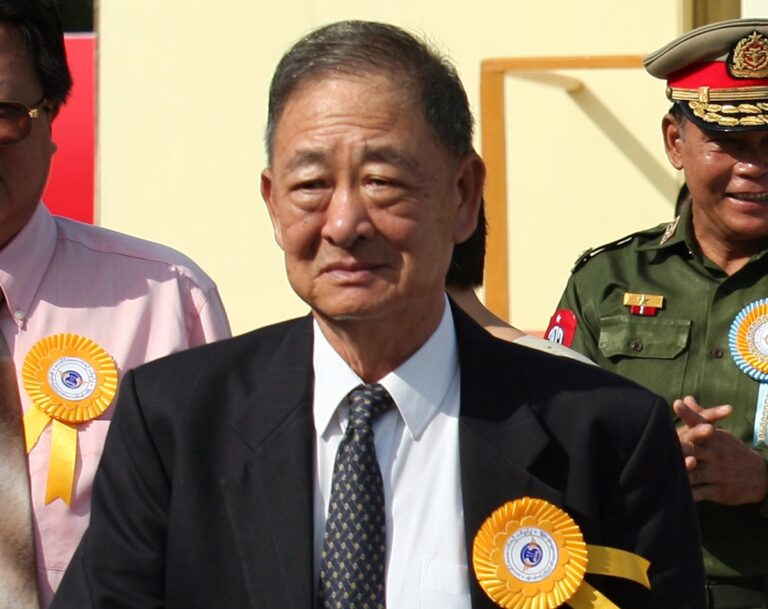
LO HSING HAN
Notorious Drug Lord and Warlord of Myanmar’s Golden Triangle
Early Life and Background
Lo Hsing Han was born in 1935 in Myanmar’s Shan State, an area known for its rugged terrain and ethnic diversity. Coming from a modest background, Lo Hsing Han rose to prominence during the chaotic decades following Myanmar’s independence when armed ethnic insurgencies and illicit economies, especially narcotics, flourished in the region.
Rise to Power
Lo Hsing Han began his career as a small-time drug trafficker in the 1950s, gradually building connections and expanding his operations.
By the 1970s and 1980s, he had become one of the most powerful figures in the Golden Triangle—the tri-border area of Myanmar, Thailand, and Laos—infamous for being a major global source of opium and heroin.
Leveraging relationships with local militias, ethnic insurgents, and segments of Myanmar’s military, Lo Hsing Han secured a dominant position in the drug trade.
Control of the Narcotics Trade
Often referred to as one of the “Kings of the Golden Triangle,” Lo Hsing Han controlled vast heroin production and trafficking networks that exported narcotics worldwide.
He utilized a combination of military power, political alliances, and business acumen to protect and expand his drug empire.
His network was involved not only in heroin but also in the smuggling of precursor chemicals and weapons.
Political Connections and Business Ventures
Lo Hsing Han cultivated close ties with Myanmar’s military government (Tatmadaw), which allegedly allowed him to operate with relative impunity.
Following a partial crackdown on the drug trade, he reportedly shifted some of his business into legitimate enterprises, becoming a significant businessman.
He invested in jade mining, agriculture, and other sectors, thus blending illicit and licit activities to consolidate his wealth and influence.
His family, including his son Steven Law (also known as Lo Ping Yuan), continued to wield significant business and political influence in Myanmar.
International Attention and Controversy
Lo Hsing Han was sanctioned by the United States under the Foreign Narcotics Kingpin Designation Act, marking him as a major drug trafficker.
Despite international pressure, he avoided prosecution for many years due to his powerful political connections.
His case highlighted the complex nexus between narcotics trafficking, ethnic conflict, and state power in Myanmar.
Legacy and Impact
Lo Hsing Han’s operations contributed significantly to the heroin epidemic that affected Southeast Asia and beyond, with social and economic consequences still felt today.
His blending of militancy, drug trafficking, and business exemplifies the challenges Myanmar faces in separating illicit economies from legitimate governance.
While he passed away in 2013, his family and business empire remain influential in Myanmar’s economic and political landscape.
Death
Lo Hsing Han died in August 2013. Reports indicate he died of natural causes.
His death marked the end of an era for one of the most notorious drug lords of Southeast Asia but did not end the legacy of narcotics-related issues in the region.
Summary
Lo Hsing Han was a key figure in the history of Myanmar’s Golden Triangle narcotics trade. His rise from small-time trafficker to powerful warlord and businessman illustrates the deep entanglement of drug trafficking, ethnic conflict, and political power in Myanmar. His legacy remains a cautionary tale about the challenges of combating organized crime amid fragile governance and conflict.

